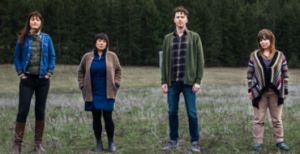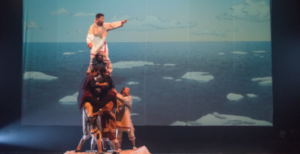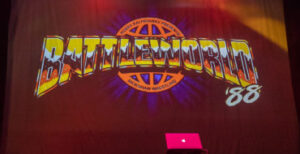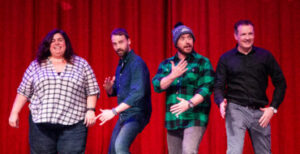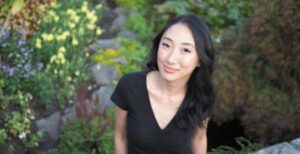Sloshing, swirling and splashing sounds dominate the opening scene of Tan Dun’s Tea: A Mirror of Soul, which had its Canadian premiere Saturday at the Queen Elizabeth Theatre, produced by Vancouver Opera. Three full glass basins surround the production’s set, manned by percussionists who wrest all manner of fluid sounds from their contents.
This is no mere gimmick. The sounds of flowing water and crinkling paper (also used to great effect in Tea) loomed large in Tan’s childhood, through the shamanic rituals practiced on the rice plantations of cultural revolution China. Now, having won an Oscar for his score of Crouching Tiger, Hidden Dragon, collaborated with Google to form the YouTube Symphony Orchestra, and become China’s most prominent composer, Tan regularly looks back to his formative years for musical inspiration.
In Tea, the sound of water being poured evokes the ceremonial importance of the titular beverage in the mythic China where the opera is set. The story revolves around the love between Chinese princess Lan (Nancy Allen Lundy) and Japanese prince Seikyo (Chen-Ye Yuan). The couple must journey to the south of China to find the storied Book of Tea, in accordance with a deadly wager between Seikyo and Lan’s jealous brother, the prince (Roger Honeywell). The opera culminates in a confrontation between these two rivals, resulting in the death of Lan, who comes between their swords. The heartbroken Seikyo is left to become an eccentric old monk in a Japanese monastery, presiding over tea ceremonies with empty cups.
Musically, Tea alternates between spiky and smooth. Tan’s oeuvre runs the gamut from high-functioning kitsch (Internet Symphony) to ambitious fusions of Eastern timbres with jagged, atonal melodies (the four parts of Orchestral Theatre). Tea falls comfortably into this second category. Tan’s score darts effortlessly from Steve Reich-inspired percussive passages, to meditative drones punctuated by the sounds of water and paper, to the sensuous and romantic music written for Seikyo and Lan near the beginning of the second act.
Vancouver Opera music director Jonathan Darlington makes these tonal shifts feel natural, obviously unfazed by the logistical nightmare of keeping the onstage singers, drummers, water splashers and paper crinklers together with the orchestra.
This production features some astonishing singing, courtesy of a cast that boasts two singers from Tan’s original production of Tea in 2002: soprano Nancy Allen Lundy as Lan, and mezzo Ning Liang in multiple roles. Listening to Liang negotiate the angular melodies of her “ritualist” character in the first act is a particular musical highlight.
But, the most moving singing comes from baritone Chen-Ye Yuan. Yuan’s Seikyo is equally compelling as an impetuous, decisive young prince and as a haunted, vulnerable old monk. On Saturday, he was responsible for the most breathtaking moment of the evening when, in the opera’s final scene, the elder Seikyo issued a single falsetto note, dripping with decades of accumulated grief. Growing and picking tea are difficult, he explained, but drinking it is even harder. We believed him.
The sets, costumes and lighting, all originally conceived for Amon Miyamoto’s 2007 production of Tea in Santa Fe, effectively mirror Seikyo’s transformation: colourful, regal and lavish during his youth in China, then grey and sombre in the monastery of his old age.
But, for all of the production’s visual spectacle, arresting singing and effective drama, the thing I can’t get out of my head is the sound of water. It’s a sound we’ve all heard before, but in Tan’s hands it becomes music. The mundane takes on a deeper meaning, like in a Japanese tea ceremony.
So, if the dripping of your coffee maker isn’t sufficiently musical for you, see Tea: A Mirror of Soul, and experience the sonorous possibilities of water.
And voices and instruments too, I guess.
